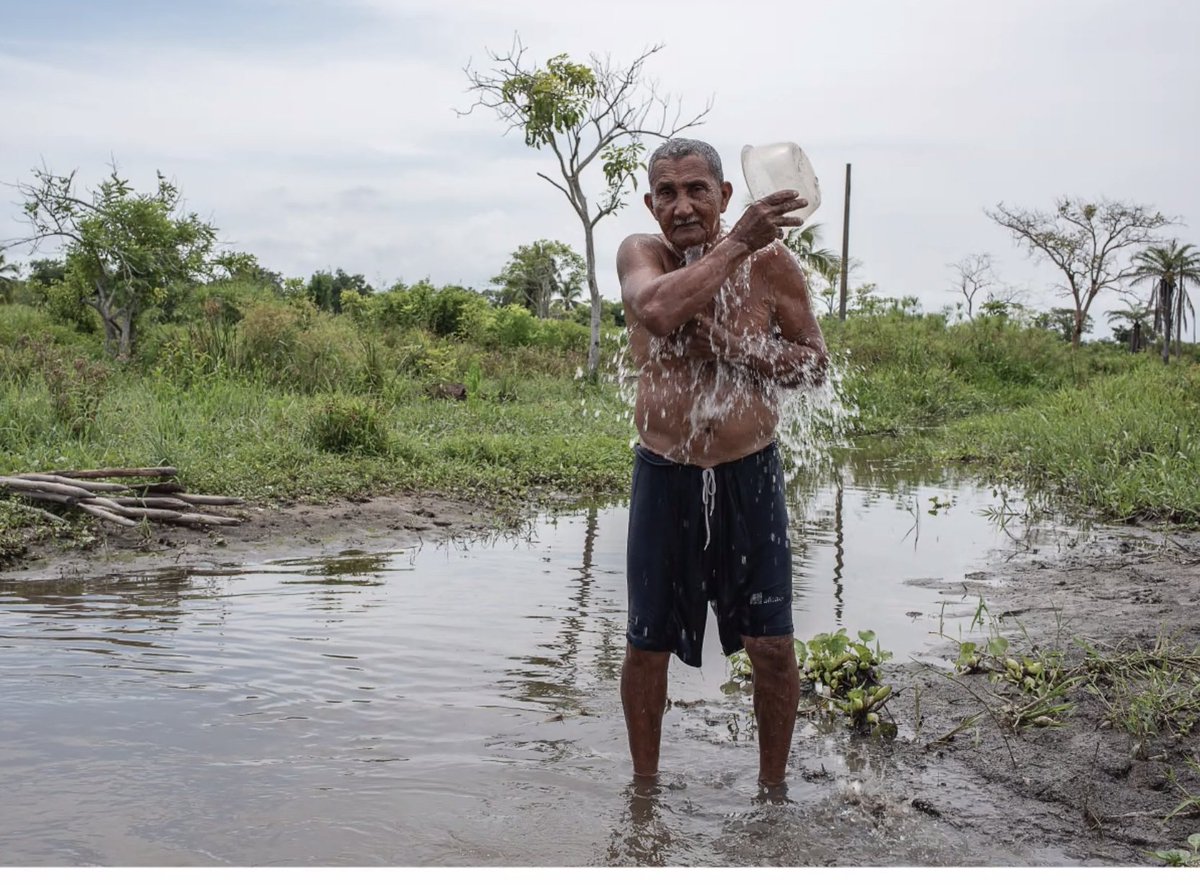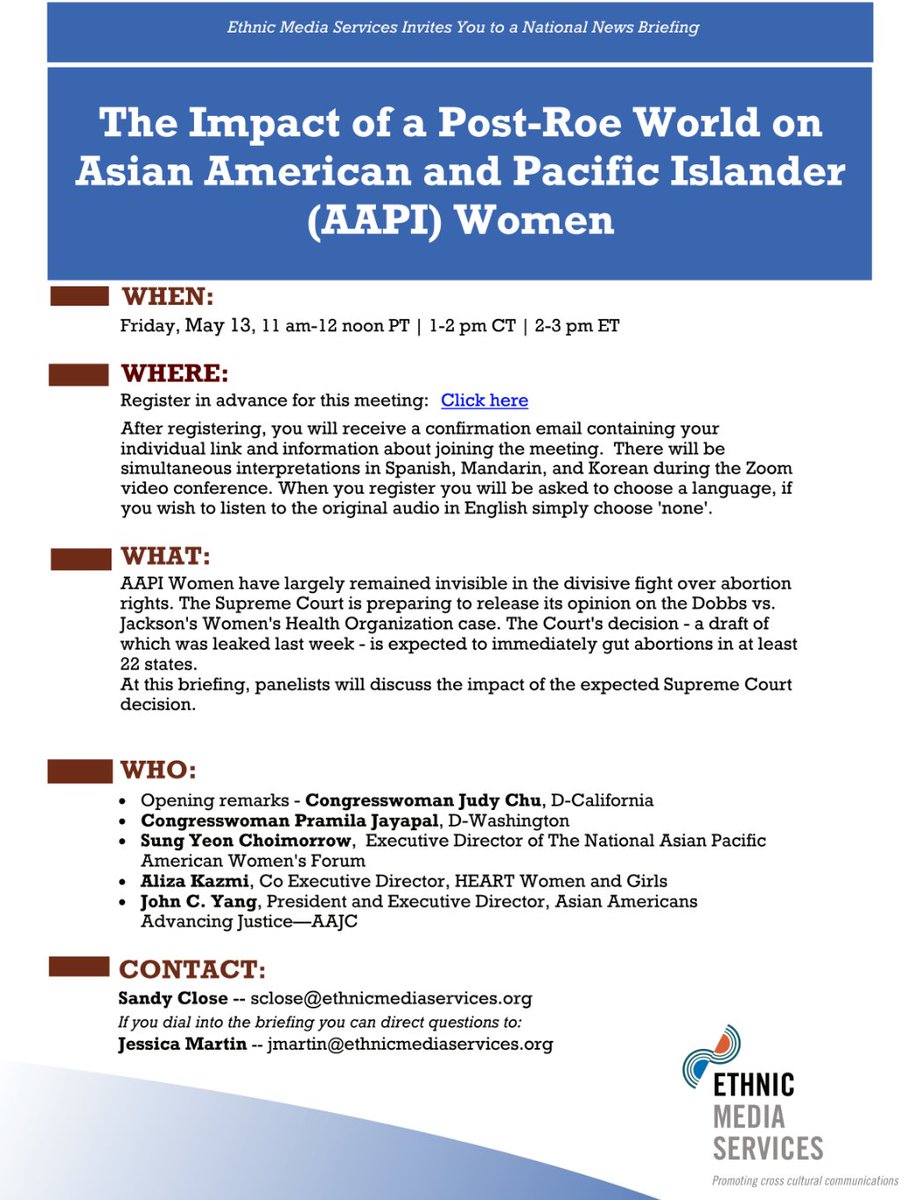
🗣️Tomorrow at 11am PST we'll look at #LatinAmerica and why this region-undergoing dramatic change-is critical to U.S. interests. Follow via FB Live fb.me/e/1Ln7gUeOh @globalexchange @Peninsula360P @christinefolch @MigrationPolicy ethnicmediaservices.org/media-briefing… #SummitOfAmericas
Last call! Briefing starts at 11AM PST. Our panel - Ted Lewis of @globalexchange, @ruizags with @MigrationPolicy, @christinefolch of Duke U and @ManuOrtizE of @Peninsula360P - will discuss the social, political and climate changes impacting Latin America. Join us!
Welcome to today's briefing, "Why #LatinAmerica Matters to the U.S." You can follow the conversation here or via FB Live fb.me/e/1Ln7gUeOh.
Our first speaker is Ariel Ruiz Soto @ruizags with @MigrationPolicy.
What we have seen is the flow of migration is changing in the region. C. American migrants have been a significant part of the population, as well as from Nicaragua to Costa Rica, and some Haitians settling in S. America.
In fiscal year 2022, there were 1.3 million encounters by U.S. immigration authorities of migrants. Encounters means events, not individual people. Out of this 1.3 mil, 61% are for migrants from Mexico, Guatemala, Honduras and El Salvador.
The remainder are from other parts of the world. They are becoming a larger piece of this flow, and U.S. systems are not equipped to handle this increasing diversity.
The Mexico, Guatemala, Honduras, Cuba and Venezuela are the top countries representing aprehensions.
Mexico apprehended 328K+ migrants and is among the top recipients of asylum applications in the world.
The flow of Venezuelans continues to be a significant component of trends in migration as well.
How have countries responded? Most rely on enforcement. Before the pandemic, between 2015 & 2019, Mexico and the US deported 1.1 million migrants from El Salvador, Honduras and Guatemala.
We are now seeing similar rates of deportation in Mexico. The majority of those apprehended are removed the from the country. But not all migrants are able to be returned to their countries of origin (eg Cuba and Venezuela)
This is a major point of focus at the @SummitAmericas, getting countries or origin to accept deported migrants.
We see an opportunity at the @SummitAmericas to 1. create stability in communities that are receiving migrants 2. increase legal pathways and protection for migrants 3. making border management more humane.
Recent years have shown migrant controls have become more violent across the region.
Why do some countries refuse nationals to come back after they have been deported? There are usually not agreements in place with these countries, says @ruizags. Cuba and Venezuela come to mind.
There will be a declaration from the @SummitAmericas but many of us are looking to see who will sign the declaration, and whether the US will be a partner in making border management more humane.
Have you seen an increase of Venezuelans coming through Texas? There has been an increase in Venezuelans recently. Mexico imposed a visa restriction on Venezuelans, forcing Venezuelans to now travel in caravans to try and cross the country.
Has Mexico's crackdown on migrants targeted those from outside Latin America? Mexican enforcement took a turn last year, increasing checkpoints to detect migrants. In practice, certain countries have higher rates of asylum than others in Mexico.
Haitians, Cubans and Venezuelans are among those least likely to gain asylum in Mexico, and hence more likely to travel in caravans.
The increasing diversity of migration calls for a region-wide reassessment of systems to ensure a more humane approach to migration management.
Our next speaker is @christinefolch of @DukeU who will speak on how #climatechange and energy transitions are affecting Latin America.
In the US, we get 2/3 of electricity from #fossilfuels. This reliance on fossil fuels for electricity is common across the world. There is one exception to this: Latin America, where more than 2/3 of electricity comes from #renewableenergy.
This raises opps for engagement from the US. Rather than building a wall... there can be a way to think about building wells that draw people together.
Itaipu Binational Dam in Paraguay is the world's largest dam, enough to power 1/3 of California. It produces more electricity because of the quality of the river. It is a signal for the future in terms of trans boundary water management.
The EU is descended legally from coal agreements from W. Germany and France. MERCOSUR is descended from an agreement that led to the creation of this dam. Hence, water is to Latin America as coal is to the EU.
Paraguay is 100% renewable energy today. In Argentina the goal is 20% renewable energy by 2025. How will they do this? With wind.
There are more than 50 major wind farms, with 14x growth in the recent years.
These are two examples that show how Latin America can be a leader on climate change, energy transitions, and green growth.
Is the US paying any attention to Latin America's leadership on climate? Much of the focus at the @SummitAmericas is on migration, corruption and organized crime. Climate change and energy transitions offer a potential solution to some of the challenges.
What has made countries in LATAM innovators in addressing energy generation and #climatechange? LATAM opted for hydropower even if many of its countries are exporters of fossil fuels. So it is not a question of lack of resources, but a question of direction.
Our next speaker is Ted Lewis of @globalexchange who will speak on political shifts in LATAM and the @SummitAmericas.
The headlines on the @SummitAmericas have focused on the disputes and divisions, including Mexico's absence and the fact that Venezuela, Cuba and Nicaragua were not invited.
This does not mean these countries are not attending in other ways. But this whole summit process is part of a larger political picture in which the US has attempted to dominate the process for decades.
It is most important in looking at the shifts in the region to look at Mexico and what it is doing in reference to the US. The fact that President Obrador decided not to come is symbolically a reassertion of Mexico's foreign policy independence.
To see Pres. Obrador stand up to the US is good, but Mexico continues to take a position on immigration that are giving in the US pressure. This is a very important moment where we see a divide in the road.
As we look with hope to what Biden wants to do, the reality is they won't be able to pull off the changes that are needed because they are trapped politically.
A lot of pressure in Latin America driving changes is coming from popular movements. Colombia is coming toward a pivotal election driven by social movements from below. The solution on climate, immigration and the drug war could come out of these movements.
This is what is fresh and new and what we need to be focusing on in Latin America.
Our final speaker is @ManuOrtizE of @Peninsula360P, who has traveled to Colombia over the past 10 years. "All this time I have seen transformations from hope, to peace to the return of violence."
"I have also seen the creation of new movements and alliances between these movements."
"Every time I travel to Colombia I have more questions than answers."
Colombia has among the highest number of internally displaced people worldwide, including this farmer, who in 2015 lost his land to paramilitary groups.
Between 2002-2010, the Colombian government installed paramilitary groups that took land and handed it over to international corporations, all under the auspice of the drug war.
Colombia's 2016 peace agreement will not work if it does not include Afro Colombians, Indigenous, and the return of land to displaced communities. And this is what has happened. The agreement is all but dead. 

Today regions that had begun to see a return to peace are now again being taken over, this time by cartels.
This is Macondo, the setting for 100 Years of Solitude, where today farmers have scarce access to water and deal with the increasing encroachment of paramilitary groups and cartels. 

Most displaced people in Colombia are Afro-Colombian, Indigenous and farmworkers. Many of them settle in urban centers like Cali and Medellin. Last year youth across these demographics joined in a national protest. The govt response was to assassinate and disappear them.
Colombians will elect their next leader in June. One of the VP candidates in an Afro Colombian who represents a new sense of hope in the country.
Are we at a turning point in how the US understands LATAM?
The @SummitAmericas is a "wake up call" for the region. Honduras, Guatemala and El Salvador's absence -- these countries represent 61% of migration flows -- is deeply significant, says @ruizags
There is an incredible amount of attention being paid to LATAM, particularly in terms of extractive resources, by political and economic interests. There needs to be more attention paid to this, says @christinefolch
The growth in consciousness among LatinX communities is welcome because from the diaspora we can make that shift to interact with LATAM as equals and respect and not in the geopolitical manipulation that has characterized it for way too long, says Ted Lewis.
In Colombia, we will see this alliance of movements create social change regardless of what happens in the June elections, says @ManuOrtizE.
Thanks to all our speakers today for an insightful and important look at Latin America and the changes taking place in the region. Visit our website for reporting on this and future briefings. ethnicmediaservices.org
@threadreaderapp unroll
• • •
Missing some Tweet in this thread? You can try to
force a refresh







